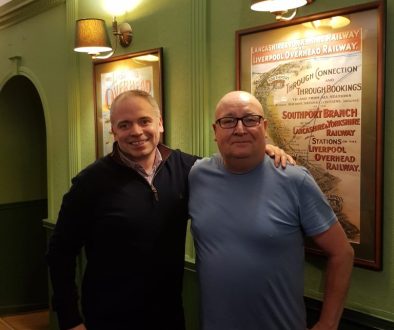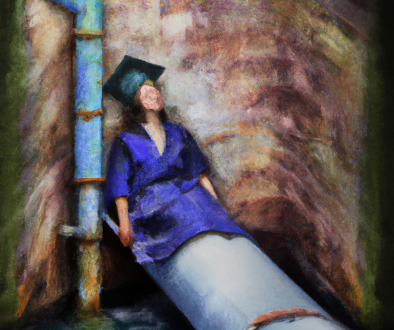Hope, by Craig Hammond
I should never have been destined for an academic career. The historical and economic mechanics of my working class childhood, and youth, invoked a series of structures and influences which formed a very different life journey to the one that I was to subsequently pursue as a young adult. Born and nurtured in Blackburn, Lancashire, a post- industrial Cotton Town in the north-west of England during the 1970s and 1980s, I witnessed the impact of the decomposing environment of abandoned cotton mills, alongside the Thatcherite-driven decline of local industry and widespread unemployment. My social activities as a youth consisted of youth clubs, Working Men’s Clubs, 2nd Division football, and, eventually, peer groups associated with Manchester-based ‘indie’ music.
I fared abysmally at secondary school, unceremoniously deemed by my teachers to lack the academic potential to be entered for GCE O – Level exams; good GCE passes were a statutory requirement to secure a coveted trade apprenticeship with one of the established local engineering companies.
Disappointed with the prospect of leaving school at 16 with few qualifications, and either applying for production work in a factory or seeking work as an unskilled labourer in the building trade, I took the only other available escape route out of unemployment, and applied to join the army. After serving two years as a Trooper in the Life Guards in the Household Cavalry, it was clear that I was unsuited to the discipline, rules and conformity required to be a safe and successful soldier. As a result, two months after turning 18, I was discharged from Woolwich military hospital. Returning to Blackburn with a young family, I needed to earn regular money, and secured employment as a weaver, working on a three- shift basis at one of the last remaining textile companies. The work was arduous, physical and isolating; and reeling from the tumult of the years since leaving school, my energy for life and youthful arrogance quickly dissolved.
After several years of machinated, production- line existence, a deepening sense of agitation started to grow; something was missing, I felt an overwhelming ache, that I had more to do and more to give; that I had abandoned something between youth and adulthood. Gradually – by this time, age 24 – hope started to sporadically resurface; through poignant and personal encounters with films, books and music, I felt that I was being guided – almost – against overwhelming odds, to reach out towards something new.
One afternoon, after finishing a 6.00 am – 2.00 pm shift, I detoured to one of the Town Centre bookshops (before collecting my daughter from the Nursery) with the intention of becoming better read and, ultimately, educating myself. Not knowing what to look for when I arrived at the bookshop, the only book in the philosophy section that I vaguely recognized was Friedrich Nietzsche’s On the Genealogy of Morals (of course I hadn’t heard of – or was in any way aware of – the book, but I had heard, through wider cultural references, of Nietzsche’s name). There and then, I was grabbed by the intriguing aphorisms on the first page of the preface, and attempted to make sense of the purpose and context of the book; I continued to read and grapple with it at home, trying desperately to dissect and understand it. I quickly realized that, while excited that I could understand and glean meaning from some areas and sections of the book and in doing so, start to question my schoolteachers’ labels and judgements about having low intelligence, I needed to return to study in order to learn how to learn and to expand my knowledge.
In February 1994, I enrolled with the Open University (OU) to study on the D103 Introduction to the Social Sciences foundation course. In the canteen during break times at work, I would read, study, make notes and sometimes write parts of my OU assignments; at home late at night and in the early hours, I would continue to study, and I loved the learning. But it was in a secret and interior world, one that I shared with Educating Rita, Shirley Valentine, the Shawshank Redemption, Joy Division, New Order, the Stone Roses and Charles Bukowski, that the drive, hope, and importantly the self- belief that I could, maybe, do something more, started to awaken. In the mirror, I would see an unhappy, introverted working-class man, with a legacy of missed chances and a limited future of restricted opportunities; but with Andy Dufresne and Bye Bye Badman, my hopes, daydreams and horizons of possibility started to open up, and I dared to start to dream of new adventures with learning.
(Excerpt adapted from Craig Hammond’s book Hope, Utopia and Creativity in Higher Education: Pedagogical Tactics for Alternative Futures.)

